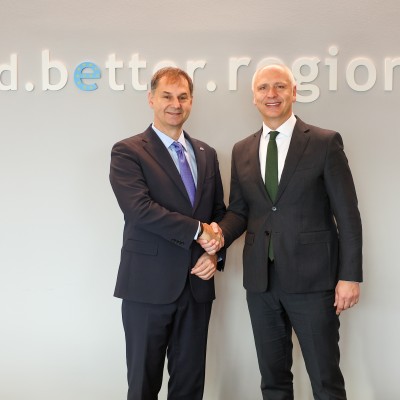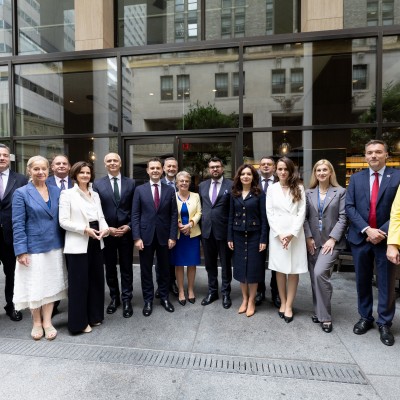RCC Secretary General joins experts in addressing economic crisis in South East Europe
09 April 2010
Hido Biščević, Secretary General of the Regional Cooperation Council (RCC), took part in a conference of ministers of economy and finance of the South-East European Cooperation Process (SEECP), which is being held in Istanbul, Turkey, on 8-10 April 2010.
The event, which also gathered governors of central banks in the region, was organized by the Turkish SEECP Chairmanship-in-Office in order to exchange experiences in dealing with effects of the global economic and financial crisis on South East Europe.
“Only a year ago, it seemed that our countries were rushing into a downward spiral threatening to wipe out a decade of significant growth”, said the RCC Secretary General in his address to the conference.
“Due to swift measures taken by the governments in the region, however, as well as a coordinated and timely assistance from international financial institutions, the negative trend was reversed and the region was put on a path of slow and gradual recovery.”
Secretary General Biščević reminded that although we may be in somewhat calmer waters now, the work of the governments and monetary institutions in the region, as well as RCC partners, is still far from over.
“Now, more than ever, South East Europe needs fresh and bold development initiatives and continued investment as this is also the best investment in durable stability.”
Conference participants appreciated an IMF presentation on the current state of and predictions for future financial developments in the region. They noted that structural reforms, public expenditure, unemployment, investment flow and credit activities, as well as general restoration of public confidence are the areas were full attention and caution will still be needed.
“One would hope that a lesson learned from this crisis is the awareness that our countries truly need to reach out and start working together in order to make the best use of vast human and natural resources, beyond political constraints”, concluded Biščević.



